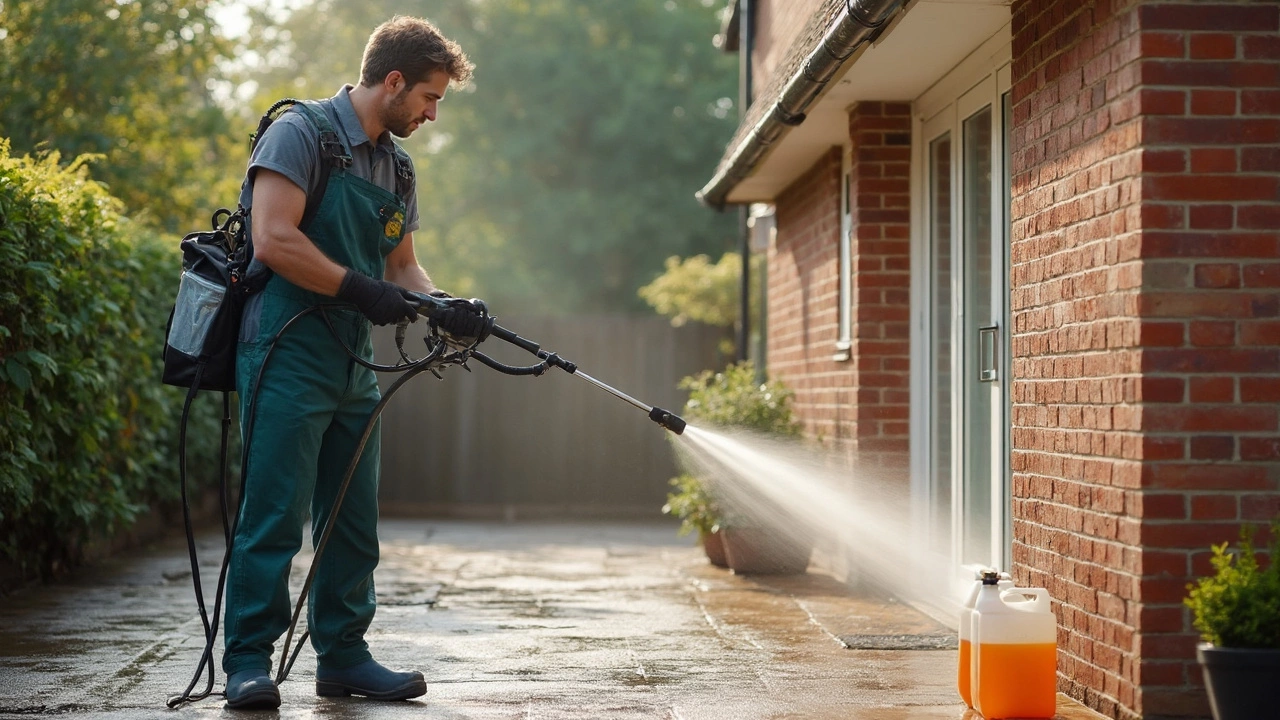Professional Pressure Washer: What You Need to Know
If you’ve ever watched a crew blast away grime from a driveway, you know a pressure washer can make a huge difference. It’s basically a high‑power water gun that removes dirt, mold, and old paint in minutes. The right machine saves time, cuts labor costs, and leaves surfaces looking brand new.
Before you buy or hire a professional pressure washer, think about the jobs you’ll tackle. Light tasks like cleaning garden furniture need less power, while a heavy‑duty unit is better for brick walls, concrete slabs, or removing stubborn paint. Knowing the pressure level (measured in PSI) and water flow (gallons per minute) helps you match the tool to the job.
How a Pressure Washer Works
A pump forces water through a narrow nozzle, creating a fast‑moving stream. The faster the water, the more force it carries, and that force lifts grime away from the surface. Most units let you swap nozzles to change the spray pattern – a narrow “pinpoint” jet for tough spots and a wide fan for larger areas.
Many professional models also have a detergent tank. Adding the right cleaner boosts results on oily driveways or greasy kitchen walls. Just remember to rinse with clean water afterward so no residue is left behind.
Choosing the Right Machine for Your Job
Start with the PSI rating. For everyday home cleaning, 1,500–2,000 PSI is enough. Anything above 2,500 PSI is considered heavy duty and is great for stripping paint or cleaning large commercial areas. Pair that with a flow rate of 2–4 gallons per minute for decent coverage without wasting water.
Electric units are quieter, lighter, and need less maintenance – perfect for patios, windows, and small decks. Gas‑powered washers are bulkier but give you more power on the go, making them ideal for builders, landscapers, or anyone who works off‑grid.
Don’t overlook safety. Wear goggles, long sleeves, and sturdy shoes. Keep the nozzle at least 12 inches from the surface to avoid gouging, and never aim at yourself or pets.
Maintenance is simple: rinse the pump after each use, check the oil in gas models, and replace worn‑out nozzles. A well‑kept washer lasts years and keeps performance steady.
When you’re ready to hire a professional service, look for companies that use certified pressure washer operators and eco‑friendly detergents. They’ll know the right pressure settings for each material, so you avoid damage while getting spotless results.
Bottom line: a professional pressure washer is a versatile tool that can handle everything from garden chairs to stubborn oil stains. Pick the right PSI, choose electric or gas based on your needs, follow safety rules, and keep the machine clean. You’ll save time, money, and get a finish that looks like it was done by the pros.

Power Wash a House: What the Pros Actually Use
Ever wonder what the pros use to power wash a house? This guide breaks down the exact equipment, soaps, nozzles, and techniques real professionals reach for to get homes spotless and damage-free. You'll find out why pro gear matters, which detergents make the most difference, and tips for safe cleaning on any siding. If you're tackling a big cleaning job or just curious, this article gives you the inside scoop without all the jargon.
Read More